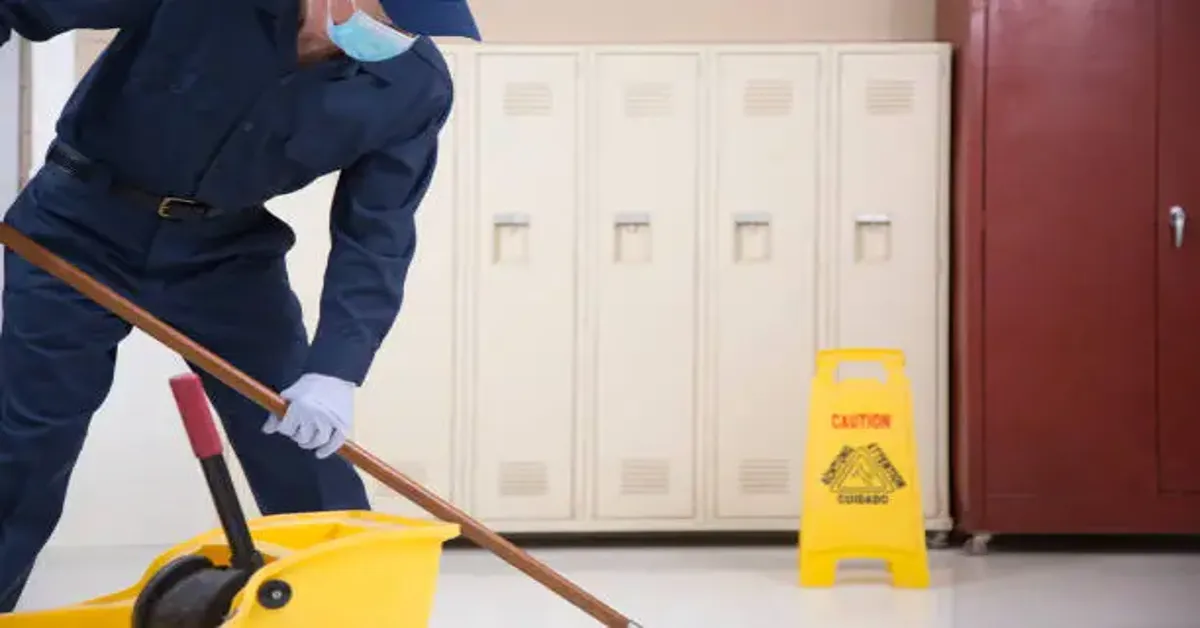Modern workplace safety regulations have evolved far beyond basic housekeeping requirements, creating comprehensive frameworks that protect employees while reducing liability exposure for employers. Professional janitorial services now function as essential partners in maintaining regulatory compliance, helping businesses navigate complex safety standards while creating environments that support both productivity and worker wellbeing.
The integration of safety compliance into daily cleaning operations represents a strategic approach that benefits both employees and business owners. Professional janitorial services teams receive specialized training in hazard recognition, proper chemical handling, and emergency response procedures that extend protection beyond surface-level cleaning.
Safety Compliance Areas Addressed By Professional Janitorial Services
Professional janitorial services focus on meeting specific compliance requirements that directly impact workplace safety and regulatory adherence.
- Hazardous Material Management – Professional janitorial services maintain detailed protocols for handling, storing, and disposing of dangerous cleaning chemicals in compliance with OSHA standards. These services ensure proper labeling, provide safety data sheets, and implement containment procedures that prevent accidental exposure. Trained personnel understand chemical compatibility issues and emergency response procedures that protect both cleaning staff and building occupants.
- Slip and Fall Prevention – Comprehensive floor maintenance programs address one of the most common causes of workplace injuries through strategic cleaning schedules and hazard identification. Professional services implement wet floor protocols, maintain proper drainage systems, and ensure that walking surfaces remain free from debris and spills. Regular inspection and maintenance of floor surfaces help identify potential hazards before they cause accidents.
- Indoor Air Quality Standards – Professionals maintain HVAC systems, replace air filters, and control dust levels that directly impact respiratory health and regulatory compliance. These services monitor humidity levels, address mold concerns, and ensure proper ventilation in all work areas. Clean air systems reduce the risks of sick building syndrome while meeting environmental health standards.
- Infectious Disease Control – Specialized sanitization protocols target high-touch surfaces and common areas that can harbor pathogens and spread illness throughout the workplace. These services implement CDC-recommended disinfection procedures, maintain proper sanitizer stations, and ensure restroom facilities meet health department standards. These measures reduce disease transmission while supporting public health requirements.
- Emergency Preparedness – They maintain clear evacuation routes, ensure accessibility of emergency equipment, and keep safety systems functional through regular maintenance. These services coordinate with facility management to address blocked exits, maintain emergency lighting, and ensure that safety equipment remains visible and accessible.
Professional Janitorial Services Workplace Safety Benefits
Strategic partnerships with commercial office cleaning services lead to measurable improvements in workplace safety metrics while also reducing insurance costs and liability exposure. Companies that invest in comprehensive janitorial services often experience a decrease in worker compensation claims, improved employee satisfaction scores, and enhanced regulatory compliance ratings. These tangible benefits demonstrate the return on investment that professional cleaning services provide beyond basic maintenance functions.
The evolution of workplace safety standards continues to emphasize prevention over reaction, positioning professional janitorial services as crucial components of comprehensive risk management strategies. Forward-thinking businesses recognize that professional cleaning services offer expertise in regulatory compliance that internal staff may lack, providing specialized knowledge that keeps companies current with changing safety requirements.

